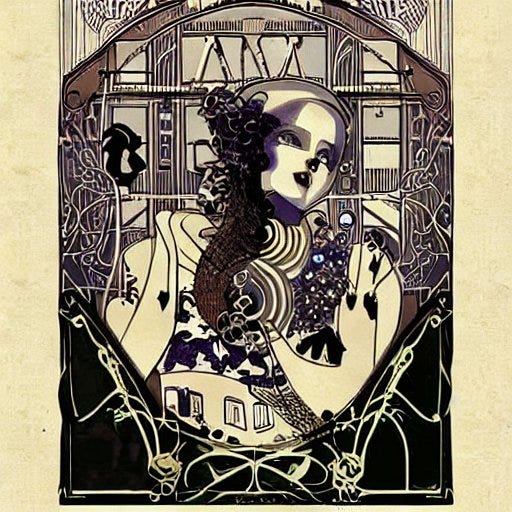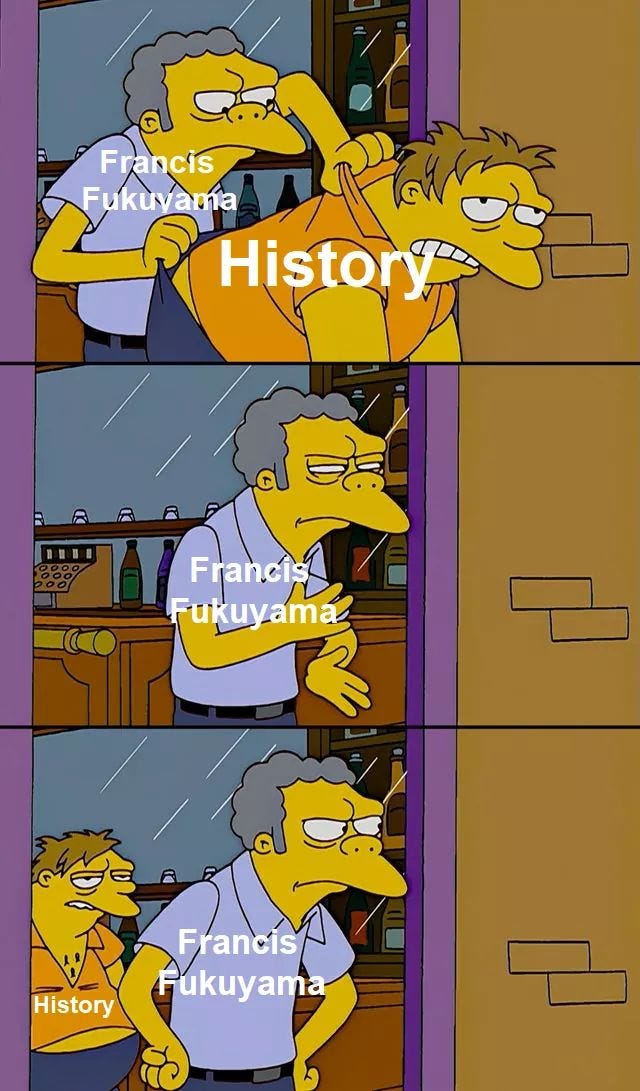The Next Modernity
In 1999 my grandfather Berthold Daimler published what today might be called his retirement hustle project: an extensively researched historical treatment on how people in the German Kaiserreich around the year 1900 imagined the year 2000.
Born in 1922, he experienced WWII as a 20 year old, pursued a management career as technical physicist in Wirtschaftswunder Germany, retirement and independent R&D into green tech in the early 1980s, research and writing on the book project in the 1990s.
The book is titled “An Uns Gedacht vor 100 Jahren?” (Thought of Us 100 Years Ago?) and its larger message is a plea for basic future awareness and accepting responsibility for promising paths of progress (as one of the grand narratives of the modernism project), while mitigating any naive optimism in its inevitability.
What makes this particularly worthwile for a re-read in 2023 is the treatment’s setting at the turn of the 19th-to-20th-century, when within a few decades, dozens of world altering inventions appeared on the scene: for the first time our great-grandparents had bikes, planes, cars, lightbulbs, telephones, the radio, and vaccines; science (and most notably, theoretical physics) was making rapid leaps forward, opening up vast new thinking spaces for practical applications.
At least pre-2020-pandemically, the years 1890-1910 have been one of the semantically closest approximations for the German phrase ‘Zeitenwende’ (turn of an era).
When I was born in December 1976, another major turn of an era already was in full swing: the Golden Age of Capitalism (aka les Trente Glorieuses in France, das Wirtschaftswunder in Germany) after 1945 came to an end, and the period of what we today call Post-Modernity began.
As the Swiss historian Philipp Sarasin shows in his excellent book “1977”, the 1970s were a crucial time in the transition from Modernity to Post-Modernity, marked by several social, cultural, and political shifts:
🤔 a growing distrust into the grand modernist narratives of enlightenment and progress, but also emancipation, equality, and the countercultural belief in the possibility of collective change
🧘 a growing sense of disillusionment and a search for new sources of meaning and identity (esp. the “authentic self”)
🕵️ critique of language and communication as a transparent medium for conveying meaning, and closely related, critique of previously unquestioned sources of power and authority, such as governments, corporations, and media organizations
💃 at the same time, rise of superficial consumer culture and hedonism, as epitomised by the rapid adoption of the credit card, shopping malls, and yeah, the emergence of disco music
💾 technological advancements, such as the development of the personal computer and the (proto-) internet facilitated the emergence of a globalized culture and, eventually, what philosopher Byung-Chul Han calls Hyperculture
🛒 the rise of identity as a concept and a political platform emerges as the nucleus of both today’s society of singularities (as suggested by sociologist Andreas Reckwitz) - but ironically also hyper-individualised consumer experiences, for example the shopping website singular-society.com
When my grandfather published his book in 1999, Western societies already have been a decade into what Francis Fukuyama famously coined “The End of History” in 1989: the optimistic belief that, after the collapse of the Soviet Union, liberal democracy and globalised free market capitalism marks the end of humanity’s ideological evolution, and the beginning of a new era of global peace and prosperity.
This interlude era of wishful thinking ended abruptly with the 9/11 attacks in 2001, the subsequent US invasions in Afghanistan and Iraq (the latter based on the 2002 US National Security Strategy, which essentially militarised ‘The End of History’ concept), the 2008 subprime credit crunch, the violent rise of the so-called Islamic State, the 2016 Brexit Vote in the UK, and the election of Donald Trump as 45th President of the USA - all of which happening while Vladimir Putin turned Russia into a Mafia cleptocracy, the People's Republic of China deepened its Belt and Road Initiative, especially on the African continent, and Earth Overshoot Day has been creeping up the calendar from December 25 in 1971 to July 29 in 2019.
So here we are in the early 2020s, shortly after a pandemic disruption of pretty much everything, everywhere, all at once; during a new hot war between 20th century systemic rivals on the 21st century European landmass; and at the beginning of a comprehensive reconfiguration of geopolitical interdependencies.
And we are experiencing simultaneously unfolding dynamics of virtualisation and de-virtualisation:
de-virtualisation: the climate crisis becomes a physically real lived experience, increasingly including the global north, which previously has experienced climate change mostly virtually, in dystopian works of fiction, academic conference reports or occasional mainstream news about far away tropical islands
virtualisation: the machines learn to fluidly symbolically engineer, at a much faster rate than we learn to make sense from it, thereby undermining both our last modern metanarrative of intellectual talent as the key for socio-economic advancement, and our post-modern ironic-relativistic sense of superiority

What we are currently observing-participating in is nothing less than the turn to the Next Modernity.
It’s hard to keep (literally) up to date with the ever growing pile of information and the availability of diverse, thus potentially conflicting perspectives, often mediated by algorithms optimised to engaged attention - all of which ultimately vastly increases a perception of ambiguity.
This leaves many of us in frequent states of cognitive dissonance, while at the same time a meaning crisis keeps unfolding even in previously deemed “normal” parts of the majority population due to what psychologist John Vervaeke describes as “a sense of drowning in an ocean of bullshit”
Our attempt to navigate this environment of increasing ambiguity feels futile; instead we seem to become decreasingly tolerant of ambiguity. Social media not only catalyses the Next Modernity, but also provides us with the tools for today’s notorious coping mechanics: in-group orientation instead of inclusiveness, epistemic cocooning instead of learning, flat take simplifications instead of nuance, and literally selling the nurturing of our surface selves as authenticity.
The signature emotion at the end of the post-modern era is schadenfreude: it is both an in-group container and a powerful cathartic device, providing us with orientation and pleasure (e.g. the ‘critical thinker’ the conservative right likes to put on a pedestal publicly exposes himself as so full of hate, he falls for April Fools day 🫣 )


Albeit a guilty pleasure that is, because amid all the post-modern irony as an attempt to set boundaries against the hyperreal insanities primetiming 24/7 on our devices, we still experience a continued (sometimes more, often less explicitly pronounced) longing for change, consensus, and collective belief.
So at this current turn of an era towards the Next Modernity the perhaps most essential question arises: how do we safely navigate forward, while at the same time acknowledging that a large part of the collective either doesn’t care, because they are ignorant or socio-economically fine (or both), or too busy keeping themselves and their families from drowning?
What can we learn from the thinking and anticipations (or rather, lack thereof) at the turn of the 20th century, the 1970s turn to Post-Modernity, and the 1990s alleged End of History?
It was only while writing and researching for this piece that I first learned about the nordic school of Metamodernism, which describes how modernism and post-modernism can synthesise into a restored belief in progress, sincerity, grand narratives, and (perhaps most importantly during our current crisis of ambiguity intolerance) both-and thinking.
Metamodernism acknowledges BOTH that motivating narratives are just fictions AND that fictions can still be powerfully motivating and useful. It is “All Models Are Wrong But Some Are Useful” as a philosophy of living a responsible life in a multi-dimensionally f*cked up world.
The metamodernist program has been described as ‘informed naivety’, ‘pragmatic idealism’, and even ‘moderate fanaticism’ - which sounds to me (and I guess my grandfather would wholeheartedly agree) as exactly what we need just now.
Looking forward,
Daniel



